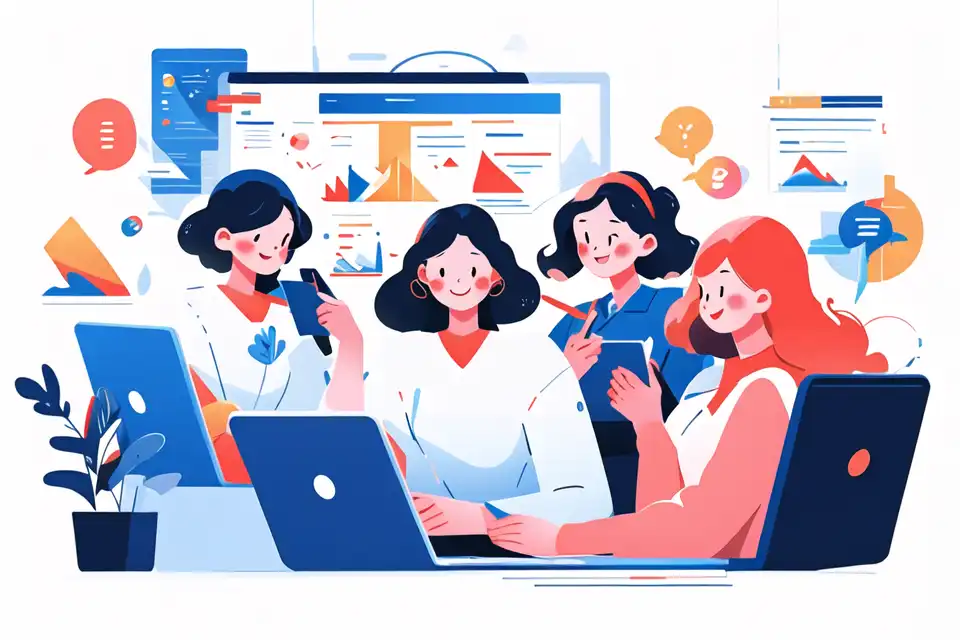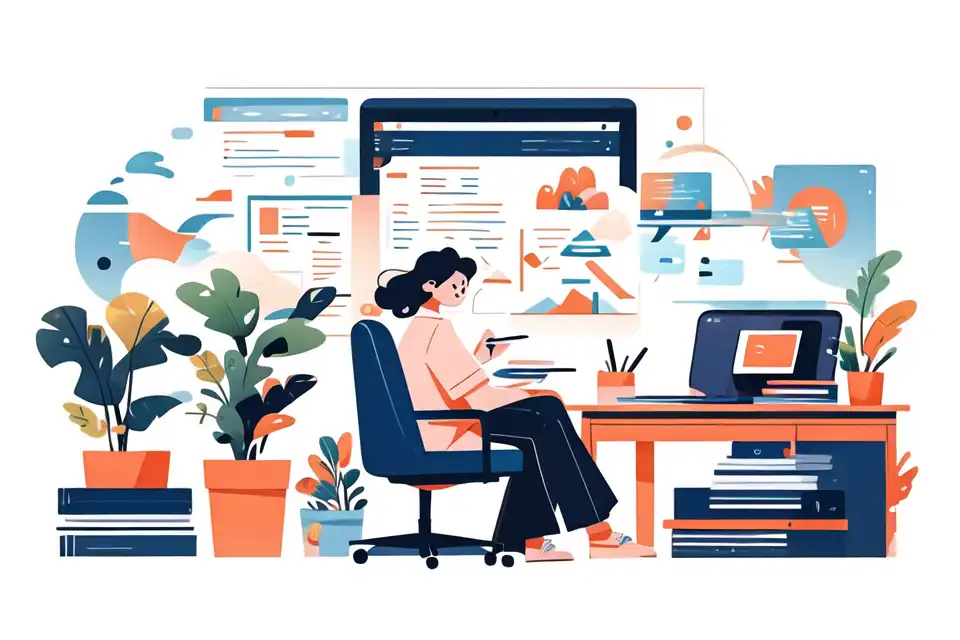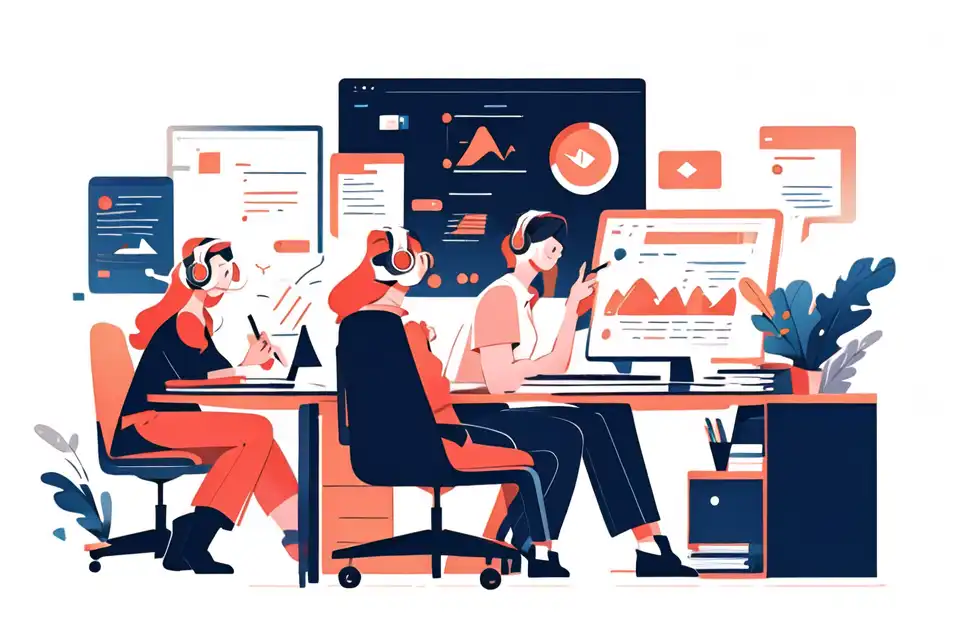How to Express Gratitude to a Colleague Professionally
Master the art of professional communication in business settings with expert guidance. Learn how to express gratitude to a colleague professionally.
Try Lark for Free
Expressing gratitude to a colleague professionally is an essential aspect of maintaining a positive and respectful workplace culture. It enhances teamwork, fosters better relationships, and promotes a supportive environment. In this article, we will explore the significance of showing appreciation to colleagues, practical examples, the consequences of neglecting this practice, step-by-step instructions, wise methods of phrasing gratitude, do's and dont's, and common FAQs.
Why is it important to understand how to express gratitude to a colleague professionally
Acknowledging a colleague’s hard work and dedication fosters a positive work environment and strengthens professional relationships. It creates a conducive atmosphere where individuals feel valued, leading to higher motivation, improved collaboration, and overall job satisfaction. Furthermore, demonstrating gratitude has been linked to increased productivity and lower levels of stress and burnout in the workplace.
Point 1
When colleagues feel appreciated, it increases their sense of belonging and engagement within the organization. This can lead to higher retention rates and reduced turnover, ultimately benefiting the company.
Point 2
Showing appreciation can also improve overall morale and teamwork among colleagues, leading to enhanced communication, cooperation, and mutual support.
Point 3
It also sets a positive example for others, encouraging a culture of gratitude and positivity within the workplace, which can have a widespread impact on the entire organization.
Use Lark Messenger to elevate your team communication.
Practical examples of dealing with how to express gratitude to a colleague professionally
Example 1
Example 1
A Typical Scenario When You Don’t Know How to Express Gratitude to a Colleague Professionally
In a team meeting, a colleague has gone above and beyond to help achieve a crucial project milestone. However, you struggle to express your gratitude in a professional manner, potentially risking the acknowledgment of their efforts.
Common Mistakes Made in This Scenario
-
Failing to acknowledge the colleague's contribution during the meeting
-
Conveying generic or insincere appreciation
Best Expression in Quotes for the Scenario
"I'd like to recognize [Colleague’s Name] for their exceptional dedication and hard work during this project. Your contribution has been invaluable, and we truly appreciate your commitment to achieving our common goals."
Example 2
Example 2
A Typical Scenario When You Don’t Know How to Express Gratitude to a Colleague Professionally
You've collaborated with a colleague who provided invaluable assistance in completing a challenging task. However, you are uncertain about the appropriate way to show your gratitude adequately.
Common Mistakes Made in This Scenario
-
Failing to provide specific details about how the colleague’s contribution positively impacted the project
-
Neglecting to follow up with a thoughtful gesture or follow-through on the acknowledgment
Best Expression in Quotes for the Scenario
"I wanted to express my sincere appreciation for your exceptional support throughout this project. Your expertise and dedication significantly contributed to our success, and I am grateful for the opportunity to collaborate with someone of your caliber."
Example 3
Example 3
A Typical Scenario When You Don’t Know How to Express Gratitude to a Colleague Professionally
During a team meeting, a colleague presents a well-researched idea that significantly advances your project plans. You wish to acknowledge their valuable input professionally, but you are unsure of the most effective approach.
Common Mistakes Made in This Scenario
-
Failing to recognize the specific impact of the colleague's idea on the project
-
Expressing gratitude in a manner that may undermine the importance of their contribution
Best Expression in Quotes for the Scenario
"I want to express my deep appreciation for the innovative solution you presented today. Your insightful ideas have significantly advanced our project goals, and I am genuinely grateful for your contributions."
Example 4
Example 4
A Typical Scenario When You Don’t Know How to Express Gratitude to a Colleague Professionally
After completing a challenging project, a colleague has played a pivotal role in ensuring its successful completion. Despite recognizing their efforts, you are uncertain about the most professional and effective way to express gratitude.
Common Mistakes Made in This Scenario
-
Conveying a lack of genuine appreciation for the colleague’s contributions
-
Neglecting to highlight the specific ways the colleague’s efforts positively impacted the project
Best Expression in Quotes for the Scenario
"Your dedication and expertise have been invaluable to our team's success in completing this project. I wanted to take a moment to express my heartfelt gratitude for your exceptional commitment and contributions."
What are the consequences of not knowing how to express gratitude to a colleague professionally
Neglecting to express gratitude to a colleague professionally can result in adverse outcomes, negatively impacting both individuals and the overall work dynamic.
Point 1
Failing to express appreciation can lead to diminished morale and motivation among team members.
Point 2
Colleagues may feel undervalued, which could contribute to decreased job satisfaction and potentially lead to disengagement.
Point 3
A lack of acknowledgment may hinder effective communication and collaboration, leading to suboptimal teamwork and reduced productivity.
Learn more about Lark x Communication
Use Lark Messenger to elevate your team communication.
Methods of phrasing how to express gratitude to a colleague professionally
Method 1: Clear and Specific Acknowledgment
When expressing gratitude, be specific about your colleague's contributions and the positive impact they have had.
Method 2: Sincere and Personalized Expression
Convey your appreciation in a sincere and personalized manner, acknowledging the individual's unique efforts and the value they bring to the team.
Method 3: Considerate Follow-Up
Following your expression of gratitude, consider following through with conscientious actions that further demonstrate your appreciation.
Do's and dont's when you don't know how to express gratitude to a colleague professionally
| Do's | Dont's |
|---|---|
| Express genuine gratitude in a timely manner | Avoid presenting vague or generic appreciation |
| Be specific about the colleague's contributions | Don’t neglect to acknowledge individual efforts |
| Offer thoughtful follow-up actions | Refrain from overlooking the impact of their contributions |
Conclusion
In summary, expressing gratitude to a colleague professionally is a cornerstone of a positive and supportive workplace environment. It fosters stronger relationships, promotes teamwork, and contributes to a more fulfilling work experience for all. By understanding the significance of showing appreciation, utilizing the provided examples, and adhering to best practices, individuals can positively impact their immediate professional surroundings and contribute to a more collaborative and harmonious work culture.








